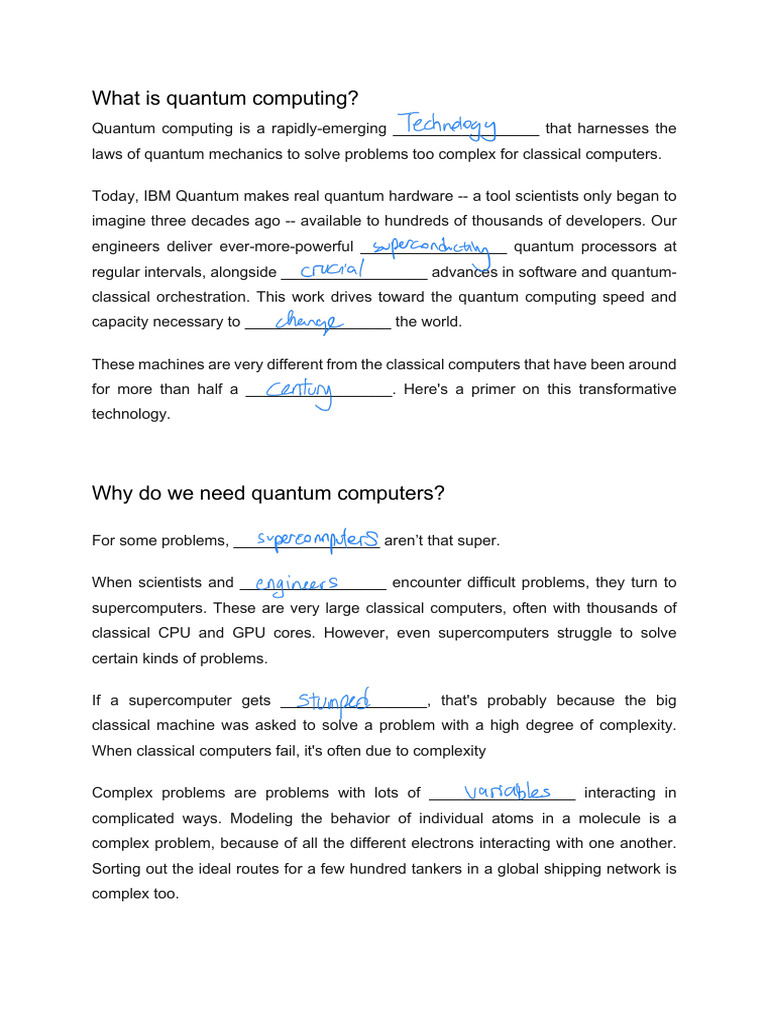Quantum computing represents a significant leap in computational capabilities, poised to revolutionize realms such as cryptography, artificial intelligence, and materials science. At the forefront of this burgeoning field is the University of Chicago, an institution that has carved a niche in advancing quantum technologies through innovative research and interdisciplinary collaboration. This article endeavors to explore the diverse avenues of UChicago’s current work in quantum computing, shedding light on the approaches, methodologies, and implications of their research.
The University of Chicago fosters a rich ecosystem for quantum research. This ecosystem is inherently supportive of collaborative endeavors that bridge multiple disciplines, including physics, engineering, and computer science. A vital part of UChicago’s strategy is embodied in the Chicago Quantum Exchange (CQE), a collaborative initiative that joins forces with national laboratories and industry leaders, driving forward the development and implementation of quantum technologies. This alliance not only brings together academic prowess but also integrates insights from the public and private sectors, ensuring that the research is prescient and applicable.
One of the prominent focuses of UChicago’s quantum research is the development of quantum algorithms. Researchers are delving into the formulation of algorithms that can harness the distinctive properties of quantum bits or qubits. Quantum algorithms have the potential to dramatically outperform classical counterparts in specific tasks. Notable examples include Shor’s algorithm for factoring large numbers and Grover’s algorithm for searching databases. The theoretical groundwork laid in these areas is critical for real-world applications in cryptography and data analysis, ensuring UChicago remains at the cutting edge of algorithmic advancements.
Moreover, UChicago’s laboratories are engaged in the construction and refinement of quantum hardware. Here, practitioners are forging ahead with the realization of qubits using various physical systems, including superconducting circuits, trapped ions, and topological qubits. Each system presents unique advantages and challenges, shaping the trajectory of research and development. Superconducting qubits have gained favor for their relatively low error rates and scalability, prompting rigorous experimental validation to optimize performance. The pursuit of fault-tolerant qubits necessitates inventive approaches to error correction and quantum fault tolerance, areas in which UChicago researchers are deeply invested.
An essential aspect of UChicago’s focus on quantum computing manifests in their exploration of quantum entanglement and its applications. Entanglement is a phenomenon where qubits become interlinked, allowing instantaneous correlations even across vast distances. Researchers at UChicago are examining how entangled states can be leveraged in quantum communication protocols, thereby enhancing security in data transmission. This research presents exciting avenues for the establishment of quantum networks, which could operate on principles vastly different from classical communication systems, drastically improving the capabilities of networks in terms of speed and security.
UChicago is also addressing the interdisciplinary implications of quantum computing. The effects of quantum algorithms and technologies effortlessly ripple out into fields such as materials science, where quantum simulations can reveal insights into molecular structures and reactions. Researchers are leveraging quantum computing to model complex chemical systems, effectively pushing past the limitations imposed by classical computations. This exploration of quantum effects can yield transformative advancements in drug discovery and the design of novel materials with unprecedented properties.
In parallel to these technical endeavors, UChicago is acutely aware of the ethical and societal ramifications that accompany advancements in quantum computing. The institution is nurturing a scholarly discourse around the implications of quantum technologies on privacy, security, and equity. The potential for quantum systems to upend current encryption standards necessitates a preemptive approach to regulating and managing such technologies, ensuring that societal benefits are maximized while risks are minimized. UChicago’s commitment to a holistic approach intertwines technical excellence with ethical considerations, prompting a broader conversation about the future of computing technologies.
The commitment to education in quantum computing is another extraordinary aspect of UChicago’s initiatives. The institution offers a robust curriculum designed to equip students with both theoretical and practical skills necessary for navigating the complexities of quantum technologies. Additionally, outreach programs and workshops foster a growing community of enthusiastic learners, ready to engage with emerging quantum concepts. UChicago is cultivating a new generation of quantum thinkers, ensuring the continuity of innovation and research in this pivotal scientific domain.
Future directions for UChicago’s quantum computing work are rife with potential. As the fields of quantum information and quantum communications mature, new challenges will surface, compelling researchers to adapt and innovate continuously. The integration of artificial intelligence within quantum frameworks stands poised to augment both computing power and efficiency, paving pathways for unexplored territories. Collaborations may also expand further into industries beyond computing, harnessing quantum technologies to address real-world problems through a multidisciplinary lens.
In conclusion, the University of Chicago is uniquely positioned as a powerhouse in the quantum computing landscape. Its comprehensive efforts—ranging from the development of quantum algorithms and hardware to interdisciplinary synergies and ethical considerations—underscore a commitment to advancing this transformative technology. The ongoing research and educational initiatives not only enrich the academic repository but also hold promise for practical applications that could redefine how society interacts with technology in the years to come. As the quantum revolution unfolds, UChicago remains steadfast in steering the narrative, contributing to a future where quantum computing plays a foundational role in shaping our technological milieu.












